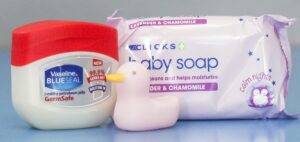Welcoming a newborn into your family is a joyful and transformative experience, but it comes with its fair share of challenges. As a new parent, you will face various issues related to your baby’s health and well-being.
Understanding how to address common newborn problems helps you navigate the early days of parenthood confidently. This detailed guide covers the most frequent newborn issues and offers practical solutions to help you provide the best care for your little one.
The Basics of Newborn Care
Establishing a Consistent Routine
Newborns thrive on routine. A well-structured daily schedule helps your baby feel secure and understand what to expect. While it’s essential to remain flexible, establishing a consistent routine for feeding, sleeping, and playtime provides stability for your baby’s development.
- Feeding: Newborns generally need to eat every 2-3 hours, whether breastfeeding or bottle-feeding. Keeping track of feedings and maintaining a feeding log helps ensure your baby gets adequate nutrition.
- Sleeping: Newborns sleep a lot, usually 14-17 hours a day. Establish a bedtime routine with calming activities like reading a book or singing a lullaby to signal sleeping time.
- Playtime: Gentle playtime is important for your baby’s growth. Engage in activities like tummy time to help develop their muscles and sensory skills.
Importance of Regular Pediatric Check-Ups
Regular visits to the pediatrician are crucial for monitoring your baby’s health and development. These check-ups allow the doctor to track growth milestones, administer vaccinations, and address concerns.
Common Newborn Issues and Practical Solutions
1. Diaper Rash: Causes and Remedies
Diaper rash is a common condition that causes redness, irritation, and soreness in the area covered by the diaper. It causes discomfort for your baby and worries you as a parent.
Causes of Diaper Rash:
- Moisture: Prolonged exposure to wet or soiled diapers can irritate the skin.
- Friction: Rubbing from the diaper causes chafing.
- Sensitivity: Your baby’s skin might react to certain brands of diapers or wipes.
- Infections: Yeast infections or bacterial infections can cause diaper rash.

How to Treat and Prevent Diaper Rash:
- Change Diapers Frequently: Change your baby’s diaper as soon as it’s wet or soiled. Keep your baby’s bottom dry at all times.
- Use Diaper Rash Creams: Apply a barrier cream containing zinc oxide or petroleum jelly during each diaper change. This helps protect the skin from moisture and irritation.
- Let the Skin Breathe: Give your baby some diaper-free time each day. Lay them on a clean towel and let them move around without a diaper to air out the rash.
2. Colic: Understanding and Managing Excessive Crying
Colic refers to excessive crying in an otherwise healthy baby. It typically occurs in the late afternoon or evening and lasts several hours.
Possible Causes of Colic:
- Digestive Issues: Gas or an immature digestive system may cause discomfort.
- Overstimulation: Too much activity or noise can overwhelm a baby.
- Adjustment Period: Babies may cry as they adjust to life outside the womb.
Strategies for Managing Colic:
- Swaddle Your Baby: Wrap your baby snugly in a blanket so they feel secure and calm.
- Use White Noise: Gentle, consistent background noise, like a fan or a white noise machine, soothes a colicky baby.
- Rocking and Soothing: Gentle rocking or walking with your baby in a carrier helps them settle down. Give them a warm bath or gentle tummy massage.
3. Reflux: Identifying and Addressing Frequent Spitting Up
Reflux, or gastroesophageal reflux (GER), occurs when stomach contents flow back into the esophagus, leading to frequent spitting up.
Symptoms of Reflux:
- Spitting Up: Occasional spitting up is normal, but frequent or large amounts indicate reflux.
- Irritability: Your baby may seem uncomfortable, especially after feedings.
- Feeding Issues: Reflux can cause discomfort during or after feedings.
How to Manage Reflux:
- Keep Baby Upright After Feedings: Hold your baby upright for about 20-30 minutes after feeding to help keep stomach contents down.
- Feed Smaller Amounts Frequently: Instead of large feedings, offer smaller amounts often. This reduces the amount of stomach contents that come up.
- Burp Your Baby Often: Burp your baby during and after feedings to release gas and reduce pressure in the stomach.
4. Jaundice: What It Is and How to Treat It
Jaundice is a condition where the baby’s skin and eyes appear yellow due to high bilirubin levels in the blood. It’s common in newborns and usually develops a few days after birth.
Causes of Jaundice:
- Immature Liver: Newborns have immature livers that can’t process bilirubin efficiently.
- Increased Red Blood Cell Breakdown: Newborns naturally break down red blood cells, which produce bilirubin.
- Breastfeeding Issues: Inadequate feeding contributes to higher bilirubin levels.
Treatment for Jaundice:
- Frequent Feedings: Ensure your baby feeds helps eliminate bilirubin through their stools.
- Sunlight Exposure: Short periods of indirect sunlight exposure help reduce bilirubin levels. Make sure the sun exposure is safe and limited to prevent overheating.
- Phototherapy: In severe cases, your pediatrician may recommend phototherapy, where your baby is placed under special lights to break down bilirubin.
5. Umbilical Cord Care: Ensuring Healthy Healing
After birth, the umbilical cord stump remains attached to your baby until it falls off naturally. Proper care of the cord area is important to prevent infection.
How to Care for the Umbilical Cord Stump:
- Keep the Area Dry: Avoid covering the cord stump with the diaper. Instead, fold the diaper down to keep the area dry.
- Clean Gently: Use a clean, damp cloth to wipe around the base of the cord stump. Avoid using alcohol or other harsh chemicals.
- Monitor for Infection: Look for signs of infection, such as redness, swelling, or a foul smell. If you notice any of these symptoms, contact your pediatrician.
6. Sleep Issues: Creating a Restful Environment
Newborns often have irregular sleep patterns, which can be challenging for parents. Understanding these patterns helps you manage your baby’s sleep needs.
Tips for Improving Your Baby’s Sleep:
- Establish a Bedtime Routine: Develop a calming bedtime routine to signal time to sleep. Consistent activities like reading a book or singing a lullaby help establish this routine.
- Create a Sleep-Friendly Environment: The sleep area should be conducive to rest. This means a dark, quiet, cool room where your baby can sleep peacefully.
- Safe Sleep Practices: Always place your baby on their back to sleep. Remove any soft bedding or toys from the crib to reduce the risk of Sudden Infant Death Syndrome (SIDS).
7. Feeding Difficulties: Tips for Successful Feeding
Feeding issues occur whether you’re breastfeeding or bottle-feeding. Addressing these challenges early on helps ensure your baby gets the needed nutrition.
How to Address Feeding Difficulties:
- Seek Lactation Support: If breastfeeding, a lactation consultant offers personalized advice and support, addressing issues such as latch problems or low milk supply.
- Try Different Bottles and Nipples: If bottle-feeding, experiment with various bottle types and nipple flows to find what works best for your baby.
- Feed on Demand: Newborns feed on demand rather than on a strict schedule. Pay attention to hunger cues and respond to these cues promptly.
8. Common Illnesses: Recognizing Symptoms and Seeking Care
Newborns are susceptible to various illnesses, including colds and ear infections. Knowing how to recognize symptoms and when to seek medical care is crucial.
How to Manage Common Illnesses:
- Practice Good Hygiene: Regularly wash your hands and avoid exposing your baby to sick individuals to prevent the spread of illness.
- Monitor Symptoms: Keep track of symptoms such as fever, cough, or runny nose. If you’re concerned or if symptoms persist, consult your pediatrician.
- Stay Educated: Understanding common illnesses helps you recognize symptoms early.
9. Skin Conditions: Managing Baby Acne, Cradle Cap, and Eczema
Newborns often develop skin conditions such as baby acne, cradle cap, and eczema. These conditions can cause concern but are usually manageable with proper care.
Managing Baby Acne:
- Keep the Skin Clean: Wash your baby’s face with water and mild baby soap daily. Avoid using oily or harsh products that can irritate the skin.
- Be Patient: Baby acne clears up within a few weeks. If it persists, consult your pediatrician for advice.
Treating Cradle Cap:
- Gentle Washing: Characterized by flaky, yellowish scales on the scalp. Use a mild baby shampoo to wash your baby’s scalp regularly. Gently massage the scalp with a soft brush to loosen the scales.
- Moisturizing: After washing, apply a gentle moisturizer to the scalp to help reduce dryness and flaking.
Managing Eczema:
- Use Gentle Products: Appears as red, itchy patches. Opt for fragrance-free and hypoallergenic baby skincare products to minimize irritation.
- Keep Skin Hydrated: Apply a gentle, fragrance-free moisturizer to your baby’s skin after baths to lock in moisture.
- Avoid Irritants: Dress your baby in soft, breathable fabrics and avoid exposure to harsh chemicals or extreme temperatures. Your pediatrician may recommend specific treatments to manage flare-ups.
10. Constipation: Recognizing and Relieving Digestive Discomfort
Constipation in newborns is characterized by infrequent, hard stools that cause discomfort and pain.
Causes of Constipation:
- Diet Changes: Changes in diet, such as switching from breast milk to formula or introducing new foods.
- Dehydration: Not getting enough fluids leads to hard stools.
- Medical Conditions: Rarely, underlying medical conditions cause constipation.
Recognizing Constipation:
- Hard Stools: Your baby’s stools are firm and pellet-like.
- Infrequent Bowel Movements: Your baby has fewer bowel movements than usual.
- Straining: Your baby strains or appears uncomfortable when trying to pass a stool.
How to Relieve Constipation:
- Hydration: Ensure your baby is well-hydrated. If you’re breastfeeding, more frequent feedings help. For formula-fed babies, ensure your baby is consuming the recommended amount of formula, or offer water in addition to their usual feeding.
- Belly Massage: Gently massage your baby’s belly in a clockwise motion to stimulate bowel movements.
- Bicycle Legs: Move your baby’s legs in a bicycling motion to ease constipation.
When to Seek Medical Help
While many newborn issues can be managed at home, there are times when you should seek medical advice.
- Persistent Crying: Your baby cries for long periods and cannot be soothed indicating an underlying issue.
- High Fever: A rectal temperature of 100.4°F or higher in a newborn requires immediate medical attention.
- Difficulty Breathing: Your baby has trouble breathing, such as rapid or labored breathing, should be evaluated by a doctor.
- Signs of Dehydration: Fewer wet diapers, dry mouth, or sunken eyes.
- Blood in Stool or Vomit: The presence of blood in your baby’s stool or vomit is a serious concern and needs prompt medical evaluation.
Be Confident in Caring for Your Little One
Handling common newborn issues can be challenging, but with appropriate knowledge and an adequate approach, you ensure your baby’s health and well-being. Establish a routine, stay informed, and seek medical advice when necessary. Parenthood is a journey. With each step, you’ll become more confident in caring for your little one.
This comprehensive guide will help you navigate the early stages of your baby’s life. Keep these tips in mind, and don’t hesitate to reach out to healthcare professionals when needed. Happy parenting!
For more tips and information on newborn care, visit Omega Pediatrics.






